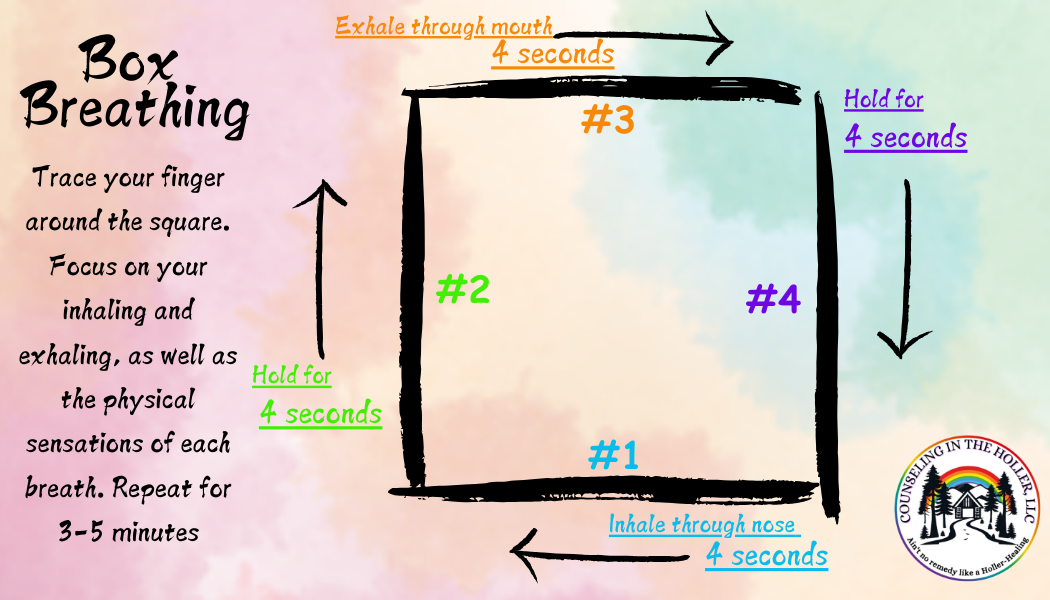Understanding Depression: Identifying the Signs and Finding Support
Feeling overwhelmed by depression, like you're stuck and unable to break free? You’re not alone. While it can feel like a constant struggle, reaching out for help, staying connected, and learning new coping strategies can make a big difference in finding your way to healing.
Depression is more than just feeling "down" for a few days. It's a persistent and overwhelming condition that can affect every aspect of life, making it difficult to function or enjoy things that once brought you joy. Recognizing the signs of depression in yourself and others, understanding the difference between situational sadness and clinical depression, and seeking professional help are essential to navigating the path to healing.
So What is Depression?
Depression, also known as major depressive disorder, is a mood disorder characterized by prolonged feelings of sadness, hopelessness and/or worthlessness, fatigue, sleep disturbances, and a lack of interest or pleasure in daily activities. Unlike situational sadness, which can fade over time, depression persists long term and often requires professional treatment.
Signs of Depression: What to Look for in Yourself and Loved Ones
Recognizing the signs of depression is the first step toward getting help. Here are the most common emotional, physical, and cognitive symptoms to look for:
Emotional and Cognitive Signs
Persistent sadness or low mood: Feeling down or empty for weeks or months.
Loss of interest: A marked decline in enjoyment of activities once considered pleasurable, including hobbies and socializing.
Feelings of worthlessness or excessive guilt: Thoughts like “I’m not good enough” or “I don’t deserve happiness.”
Difficulty concentrating: Struggling to focus on work, studies, or even day-to-day tasks.
Physical Symptoms
Fatigue or lack of energy: Feeling physically drained or unable to get through daily activities.
Sleep disturbances: Experiencing insomnia or sleeping excessively.
Appetite changes: Eating significantly more or less than usual, leading to weight changes.
Physical aches and pains: Unexplained headaches or digestive issues.
Signs in Loved Ones
Withdrawal: A loved one may begin avoiding social situations and isolate themselves.
Irritability or mood swings: Increased frustration or anger, sometimes over minor issues.
Neglect of responsibilities: Failing to meet work, family, or personal commitments.
Suicidal thoughts or talk: If someone expresses thoughts of harming themselves, this requires immediate attention. Get them help, call 911 or go to a local emergency department or crisis center. Call 988, the 24/7 national crisis hotline.
Situational Sadness vs. Clinical Depression
Situational sadness is a natural response to life events like the loss of a loved one, a breakup, or a stressful situation. These feelings typically lessen over time. In contrast, clinical depression is ongoing and doesn’t improve without intervention. If you or someone you care about experiences symptoms for more than two weeks, it’s important to seek professional support.
How to Seek Help: Practical Steps for Yourself and Loved Ones
For Yourself: Techniques to Manage Depression
Managing depression often requires a combination of professional support and personal strategies. While therapy and medication may be needed, here are some practical techniques to help improve your mental well-being:
1. Cognitive Behavioral Therapy (CBT) Techniques
Thought Record: When negative thoughts arise, write them down and challenge them by finding evidence that contradicts those thoughts. For example, if you think, “I’m a failure,” list things you've done well.
Behavioral Activation: Set small, manageable goals to help you overcome inactivity or stagnation. Start with simple activities, such as taking a walk or reaching out to a friend.
2. Mindfulness and Meditation
Practice deep breathing exercises or mindfulness techniques to reduce anxiety and promote calmness. For instance, Box Breathing: inhale for 4 seconds, hold for 4 seconds, exhale for 4 seconds, and hold again for 4 seconds. Repeat this cycle for a few minutes daily
3. Physical Activity
Regular physical exercise can help improve mood and reduce stress. Get up and move a little; Aim for simple activities like walking, yoga, or dancing, which can increase energy levels and reduce depression symptoms.
4. Sleep Hygiene
Stick to a regular sleep schedule. Create a relaxing pre-bedtime routine that doesn’t involve screens, such as reading, listening to calming music, or practicing progressive muscle relaxation.
5. Journaling
Writing down your feelings can help process emotions. Try keeping a gratitude journal or reflect on what went well each day to counterbalance negative thoughts.
6. Reach out for Professional Support
Seek therapy, such as Cognitive Behavioral Therapy (CBT) or Psychotherapy, which can help address underlying causes of depression. Medication may also be an option depending on the severity of your symptoms (only prescribed by a medical provider not a counselor).
For Loved Ones: How You Can Help
Supporting someone with depression can feel challenging, but your understanding and patience can make a significant difference. Here’s how you can help:
1. Be a Compassionate Listener
Encourage your loved one to talk about their feelings. Listening without judgment and offering emotional support can provide a sense of relief. Sometimes all someone needs is someone to listen, not solve their problems.
2. Encourage Professional Help
Suggest that they see a therapist or doctor. Offer to assist with scheduling appointments or even accompany them if they feel apprehensive about seeking help.
3. Assist with Daily Tasks
Depression can make even simple tasks overwhelming. Offering to help with chores, errands, or just spending time together can ease their burden.
4. Watch for Warning Signs of Suicide
If someone expresses thoughts of self-harm or feeling like they’re a burden, take immediate action. Contact a mental health professional or a suicide prevention hotline (988).


The Importance of Resilience and a Healthy Support System
One of the most important factors in managing depression is building resilience, which is the ability to bounce back from adversity. Resilience doesn’t mean facing struggles alone—it means having the ability to find strength through the support of others and by focusing on what truly matters in life.
According to takingtheescalator.com, cultivating resilience can significantly combat feelings of despair. Resilience is fueled by connections—whether it’s a relationship with friends, family, community, or a higher purpose. These connections act as lifelines, helping to keep us grounded during difficult times.
The Power of Caring and Connection
Caring about what truly matters, such as relationships, purpose, and personal growth, influences mental well-being. It helps us discern what is worth our attention and what we can let go of. This wisdom reduces unnecessary stress and fosters healthier emotional states.
Meaningful connections build resilience, especially when they are grounded in mutual care. When we care for something or someone, it strengthens our emotional investment, and in turn, strengthens the bonds that help us through tough times.
How Connection Enhances Resilience
Think of each meaningful connection as a "rope" that supports you. The more "ropes" you have—representing your supportive relationships—the less likely you are to "fall" during times of vulnerability.
Here are types of connections that can enhance resilience:
Purpose: Connecting to something bigger than yourself gives life meaning beyond the everyday.
Spirituality: A belief system or spiritual connection offers guidance and comfort.
Career: Finding fulfillment in meaningful work can boost your sense of accomplishment and belonging.
Community: Being part of a neighborhood or social group where you feel valued strengthens emotional resilience.
Personal Relationships: Cultivating close relationships with family and friends provides vital emotional support.
Animal Companionship: Pets can offer unconditional love and emotional comfort.
Nature: Connecting with the outdoors can provide peace and mental clarity.
Taking Action: A Visualization Exercise
To understand the importance of your connections, visualize your relationships and responsibilities. Draw a climber on a mountain and outline your responsibilities as weight they carry. Then, at the top of the mountain, illustrate or write down your meaningful connections. These "ropes" represent the relationships that support you and help you climb toward resilience and mental well-being.


Conclusion
Depression can feel like an insurmountable challenge, but building resilience through healthy, caring relationships can make all the difference. Recognizing the signs of depression, seeking help, and nurturing a support system are all essential steps in the recovery process. Remember, you don’t have to face depression alone—connecting with others and focusing on what matters most can sustain you through the hardest times.
If you or someone you care about is struggling with depression, take the first step today by reaching out for help and strengthening the connections that matter most.


